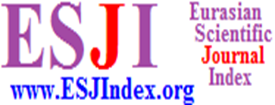Goldziher's Orientalist Perspective and a Critical Analysis of His Book 'Madhāhib al-Tafsīr al-Islāmī
گولڈزیہر کا مستشرقانہ طرزِ فکر اور اس کی کتاب مذاہب التفسیر الاسلامی کا علمی و تنقیدی تجزیہ
Keywords:
Goldziher, Orientalism, Islamic Sciences, Quranic Exegesis, Madhāhib al-Tafsīr al-IslāmīAbstract
Ignaz Goldziher, a prominent Orientalist, played a pivotal role in critiquing Islamic sciences, particularly Quranic exegesis. His book Madhāhib al-Tafsīr al-Islāmī reflects his efforts to question the authenticity of Islamic interpretative traditions. Goldziher, widely regarded in Western academia for his scholarly rigor, adopted an approach that intertwined academic inquiry with a subtle bias against Islamic sources. His critiques targeted the reliability of Quranic and Hadith interpretations, aiming to create doubts about their sanctity and historical validity. This research critically examines Goldziher's Orientalist methodology, exploring his educational background, intellectual influences, and biases against Islam. The study highlights how his selective use of Islamic sources and prejudiced analysis served to undermine the credibility of Islamic scholars and their works. While his efforts were framed as scholarly contributions, they often perpetuated misconceptions and fueled skepticism about Islamic teachings. The paper further discusses the broader agenda of Orientalism, showing how it aimed to erode confidence in Islamic traditions through intellectual challenges. It concludes that defending Islamic sciences requires a thorough understanding of Islamic epistemology, reliance on authentic sources, and a balanced response to such critiques. By exposing the flaws in Goldziher’s arguments, this study reinforces the resilience of Islamic sciences against external critiques and underscores the need for robust academic defenses.
Downloads





































